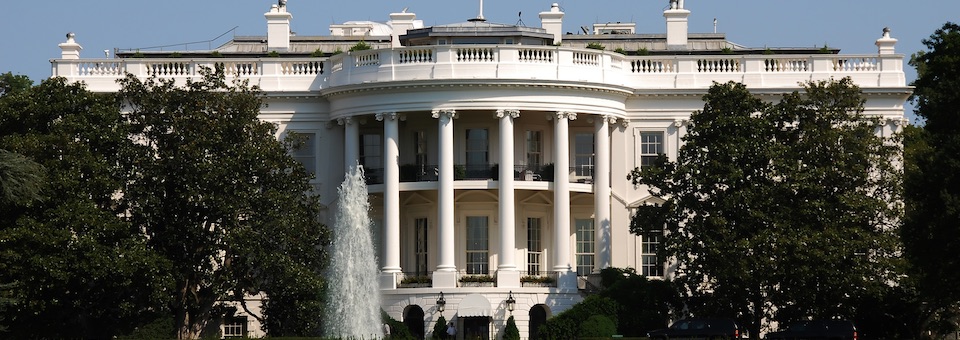Center for Reproductive Rights Statement on the Election of Joseph R. Biden, Jr. as the 46th President of the United States

Center for Reproductive Rights Statement on the election of Joseph R. Biden, Jr. as the 46th President of the United States
Statement of Nancy Northup, President and CEO of the Center for Reproductive Rights:
The election of former Vice President Joseph R. Biden, Jr. as the 46th president of the United States presents an opportunity to put human rights and human needs at the center of a new U.S. domestic and foreign policy agenda. Biden ran on a platform committed to an America that respects and embraces its broad diversity and promotes health care as a human right, including protecting and advancing reproductive health, rights, and justice. The Center for Reproductive Rights looks forward to the opportunity to transform these commitments into reality so that every person has access to the full range of reproductive health care, regardless of race, gender, sexual orientation, gender identity, disability status, national origin, age, or zip code.
When sworn in, Vice President Kamala Harris will break gender, race, and ethnic barriers, serving as the first woman, the first African American, and the first South Asian American in this office. She has a strong reproductive rights record, co-sponsoring bills addressing maternal health, contraception, sex education and abortion access, including the Women’s Health Protection Act, that would counter the threat of the Supreme Court reversing or gutting Roe v. Wade. She also supports the Equal Access to Abortion Coverage in Health Insurance (EACH Woman) Act, which will ensure that abortion care is covered under federal health insurance programs. And she is the lead sponsor of the Black Maternal Health Momnibus Act, which addresses the unconscionable maternal health disparities and poor outcomes for Black and indigenous people. As a member of the Senate Judiciary Committee, Senator Harris has vigorously opposed judicial nominees who are hostile to constitutional protections for reproductive rights.
After inauguration on January 20, President Biden and his administration must move quickly to reverse the harmful policies of the Trump administration. President Biden ran on a platform to secure reproductive health, rights and justice; promote maternal health; protect civil rights and women’s rights; and renew American leadership in international institutions, by once again promoting sustainable development, democracy, and human rights. Critical executive branch actions to advance this agenda include:
- Executive Orders to rescind the Global Gag Rule and the Domestic Gag Rule;
- Restore funding to the World Health Organization (WHO) and the United Nations Population Fund; and rejoin the WHO and the UN Human Rights Council;
- Appoint to the federal courts and Department of Justice demographically diverse lawyers with a demonstrated commitment to equal justice under law and reproductive rights; appoint to the Department of Health and Human Services officials who are committed to evidence-based reproductive health policies and to addressing racial health disparities; appoint to the State Department individuals with a demonstrated commitment to gender equity as a foreign policy priority, and to respecting, protecting and fulfilling human rights;
- Rescind Trump-era regulations, including those that allow health care workers to deny reproductive health care, and employers and universities to deny contraceptive coverage to their employees and students;
- Champion Congressional passage of the Women’s Health Protection Act, the EACH Woman Act, and the Black Maternal Health Momnibus Act.
Even with the seismic shift coming to the White House in January, access to contraception and abortion care remain vulnerable because of the relentless assaults by state elected officials hostile to reproductive rights. Since 2011, more than 500 state restrictions on access to abortion have been passed, and the Center for Reproductive Rights is currently litigating over two dozen cases challenging these dangerous laws. Recent years have seen ever-more extreme measures that directly defy the clear constitutional guarantees of Roe v. Wade and are intended to set up a show-down in the Supreme Court to overturn or gut the landmark decision. Such restrictions disproportionately harm people already facing obstacles to health care, including Black, Indigenous and people of color, rural communities, and people living in poverty.
Despite these attacks, there were two reproductive rights victories on November 3: For the fourth time in 12 years, voters in Colorado rejected a ballot measure that was designed to ban abortion later in pregnancy with no exceptions. This is a victory for all Coloradans and for many people in surrounding states who have long relied on Colorado for abortion care later in pregnancy. And in Washington state, voters chose to institute inclusive, comprehensive sex education so that every student in the state will receive honest, accurate, and inclusive information about sexual health.
As we look to the future, the lawyers and human rights advocates at the Center for Reproductive Rights will continue to advance reproductive rights as fundamental human rights in the U.S. and around the world, no matter the obstacles. We will partner with civil society, government, and the private sector to build legal guarantees to the right of every person to access reproductive healthcare and to make their own decisions about their reproductive lives. We will defend against efforts to roll back legal guarantees, and we will hold governments accountable for living up to their commitments to protect, defend, and advance reproductive rights.
###
MEDIA CONTACT: [email protected]
